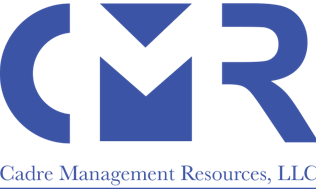Alarm Management
Manage your facility's alarm system in the DCS
What is alarm management?
Alarm management is a process by which you manage your facilities alarm system in the DCS.
ANSI/ISA-18.2, Management of Alarm Systems for the Process Industries, changed the world of alarm management when first published in 2009 with the introduction of activities grouped into the alarm management life cycle. That life cycle has since become globally recognized, as the standard has been adopted by the International Electrotechnical Commission and found wide use across the process industry sectors.
Typical problems
- Operator consoles overloaded and operators flooded with alarms
- Lack of operation mode based alarms- handle scenarios
- Alarm Chattering (poor Configuration)
- Lack of alarm documentation
- Noncompliance with ISA 18.2
- Lack of visibility on annunciated alarms
Ask yourself these questions
- What are the number of alarms the facility operator receives in an hour?
- Does the operator rely on alarm summary during alarm flood?
- Does the site have <=85% of low priority alarms, <=15% high priority alarms and <=5%of Urgent priority alarms?
- Does the operator have a reference of immediate two or three actions that he need to take to contain the abnormal situation (alarm help)?
- Does the site encounter large number of chattering or fleeting alarms?
Why do you need alarm management?
- Regulatory Compliance
- Alarm Reporting
- Management of Critical Limits and Integrity Operating Windows (IOW) / Safety Bypass / Inhibits
- Efficient/Safer Operations
- Reduction in Trips and Downtime
- Increased and Sustained Throughput (Operating Envelopes)
- Improved Asset Availability
- Reduction in Alarm Noise
- Secure Shift Handovers
- Operator Knowledge Retention, Operator AssistanceReduced Maintenance Costs
How Cadre can help you solve
- Develop a written Alarm Philosophy which provides process operations with a consistent procedure for how alarm management will be maintained
- Conduct an alarm assessment (initial and periodic) first to provide a baseline, and then to assess the alarm management progress
- Provide alarm rationalization to ensure all alarms are consistent with the alarm philosophy and are actionable alarms
Who benefits
- Control Engineers
- Reliability Engineers
- Process Engineers
- Facility Operators
What are the benefits
- Reduced Alarm ‘Stress’ and Increased Operator ‘Thinking Time’
- Early Event Detection
- Faster Recovery from Abnormal Situations (i.e. Back to Normal Operations)
- Standard and Consistent Operator Responses to Alarm Situations
- Share Operational Knowledge in Ageing Workforce
Industry leaders have reported
- Reduce unplanned downtime by 50% (up-to 80%)
- Increase abnormal situation recovery by 80%
- Minimize Deviations and Predict Abnormal Situations (each operating deviation costs significant $$$$, impacts Safety, Reliability, Quality, Energy)
